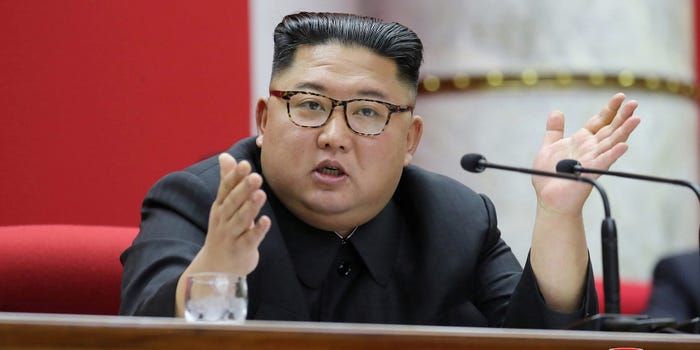
According to state media, North Korean leader Kim Jong Un said the country’s economy improved this year, but he called for measures to address the “tense” food situation caused by the coronavirus pandemic and last year’s typhoons.
According to the official KCNA news agency, Kim presided over a plenary meeting of the ruling Workers’ Party’s central committee on Tuesday to review progress on major policies and devise measures to address economic issues.
The committee set goals and tasks to achieve its new five-year economic plan, which included increased food and metal production, as outlined at its previous session in February.
According to KCNA, Kim stated that the overall economy improved in the first half of the year, with total industrial output increasing by 25% over the previous year.
However, due to a “series of deviations” in the party’s efforts to put the plans into action, he said, citing tight food supplies as one of the obstacles.
“The people’s food situation is now tense,” Kim said, citing the agricultural sector’s failure to meet its grain production plan due to typhoon damage last year.
According to KCNA, the party has pledged to focus all of its efforts on agriculture this year and to discuss ways to combat the Covid-19 pandemic.
As a lesson from last year and a key to achieving this year’s goal, Kim called for steps to reduce the impact of natural disasters.
Kim admitted in January that his previous five-year economic plan had failed in almost every sector, citing chronic power and food shortages exacerbated by sanctions, the pandemic, and floods.
According to KCNA, he also stated that the long-term pandemic required the party to increase efforts to provide food, clothing, and housing for the people.
Seoul officials have questioned North Korea’s claim that no Covid-19 cases have been confirmed. However, the isolated country has implemented stringent anti-virus measures such as border closures and domestic travel restrictions.
COVAX, a global initiative that distributes Covid-19 vaccines to poor countries, has announced that it will send nearly 2 million doses to North Korea, but the shipment has been delayed due to lengthy negotiations.









